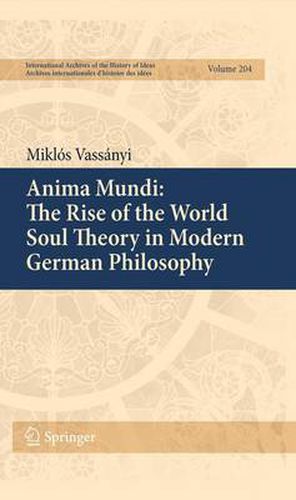Anima Mundi: The Rise of the World Soul Theory in Modern German Philosophy
Miklos Vassanyi

Anima Mundi: The Rise of the World Soul Theory in Modern German Philosophy
Miklos Vassanyi
This title is printed to order. This book may have been self-published. If so, we cannot guarantee the quality of the content. In the main most books will have gone through the editing process however some may not. We therefore suggest that you be aware of this before ordering this book. If in doubt check either the author or publisher’s details as we are unable to accept any returns unless they are faulty. Please contact us if you have any questions.
This work presents and philosophically analyzes the early modern and modern history of the theory concerning the soul of the world, anima mundi. The initial question of the investigation is why there was a revival of this theory in the time of the early German Romanticism, whereas the concept of the anima mundi had been rejected in the earlier, classical period of European philosophy (early and mature Enlightenment). The presentation and analysis starts from the Leibnizian-Wolffian school, generally hostile to the theory, and covers classical eighteenth-century physico-theology, also reluctant to accept an anima mundi. Next, it discusses early modern and modern Christian philosophical Cabbala (Boehme and OEtinger), an intellectual tradition which to some extent tolerated the idea of a soul of the world. The philosophical relationship between Spinoza and Spinozism on the one hand, and the anima mundi theory on the other is also examined. An analysis of Giordano Bruno’s utilization of the concept anima del mondo is the last step before we give an account of how and why German Romanticism, especially Baader and Schelling asserted and applied the theory of the Weltseele. The purpose of the work is to prove that the philosophical insufficiency of a concept of God as an ens extramundanum instigated the Romantics to think an anima mundi that can act as a divine and quasi-infinite intermediary between God and Nature, as a locum tenens of God in physical reality.
This item is not currently in-stock. It can be ordered online and is expected to ship in 7-14 days
Our stock data is updated periodically, and availability may change throughout the day for in-demand items. Please call the relevant shop for the most current stock information. Prices are subject to change without notice.
Sign in or become a Readings Member to add this title to a wishlist.

